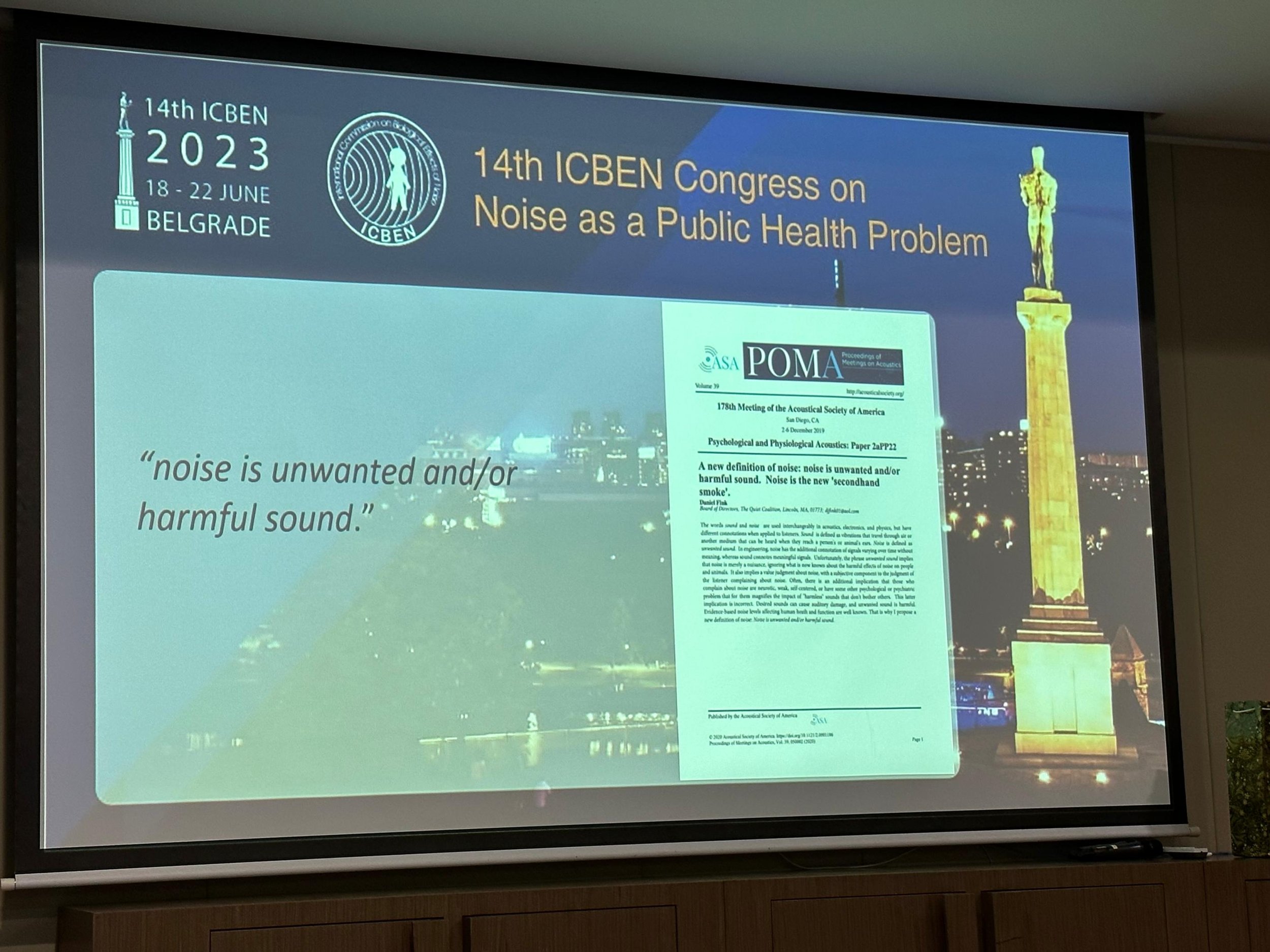By Daniel Fink, M.D.
It’s official. Noise is unwanted and/or harmful sound.
In its November 2023 issue, The Hearing Journal published my editorial about the new definition of noise, which expands on ideas I published in Proceedings of Meetings on Acoustics (POMA) in 2019. The editorial was prompted by the adoption of the new definition by the International Commission on Biological Effects of Noise at its 14th Congress in Belgrade, Serbia, in June 2023. ICBEN includes the new definition of noise now in its constitution (as part of Article II) after the executive committee adopted the definition in Belgrade.
As I wrote in the POMA article, “The words sound and noise are used interchangeably in acoustics, electronics, and physics, but have different connotations when applied to listeners.
“Sound is defined as vibrations that travel through air or another medium that can be heard when they reach a person’s or animal’s ears. Noise is defined as unwanted sound.”
ICBEN adopted the new definition of noise as “unwanted and/or harmful sound” at its 14th Congress in Belgrade, Serbia, in June 2023.
Adding “and/or harmful” to the definition is important because there are three problems with defining noise only as unwanted sound (aside from the implication that the “unwanted sound” definition suggests that there is something wrong with those of us who complain about noise).
Noise causes auditory damage—noise-induced hearing loss, tinnitus, and hyperacusis—in everyone, not just in workers with occupational noise exposure. Wanted noise, whether from a rock concert or power tool use, also damages our ears.
Unwanted noise interferes with thought, concentration, and speech. That’s stressful. Stress is bad for our health, causing problems with memory, cognition, learning, immune function, and cardiovascular health.
Noise—largely transportation noise—has proven adverse effects on human health. It causes involuntary physiological responses, including increases in blood pressure and heart rate, increases in stress hormone levels, and inflammation of the arterial lining. We think we get used to the noise, but research shows that our bodies don’t. We generally accept the hum of road traffic outside our homes, schools, and offices as part of modern life, not realizing that noise pollution is a public health hazard affecting tens of millions of Americans.
I hope Hearing Health Foundation, other advocacy groups, professional organizations such as the American Speech-Hearing-Language Association, and online and printed dictionaries will also adopt the new definition of noise.
More importantly, I hope that awareness of the facts that wanted noise can cause auditory damage and that unwanted noise is stressful will help us achieve a quieter world. A quieter world will be a better and healthier world for all.
Daniel Fink, M.D., is the founding chair of The Quiet Coalition, the interim chair of Quiet Communities Inc.'s Health Advisory Council, and a former board member of the American Tinnitus Association. He serves as an expert consultant to the World Health Organization on its Make Listening Safe Program, and as a subject matter expert on noise and the public to the National Center for Environmental Health at the Centers for Disease Control and Prevention.








Digital hearing tools can act as allies to reduce isolation. Technology has adapted to today’s needs and can help people struggling with hearing loss regain and retain their social connections.